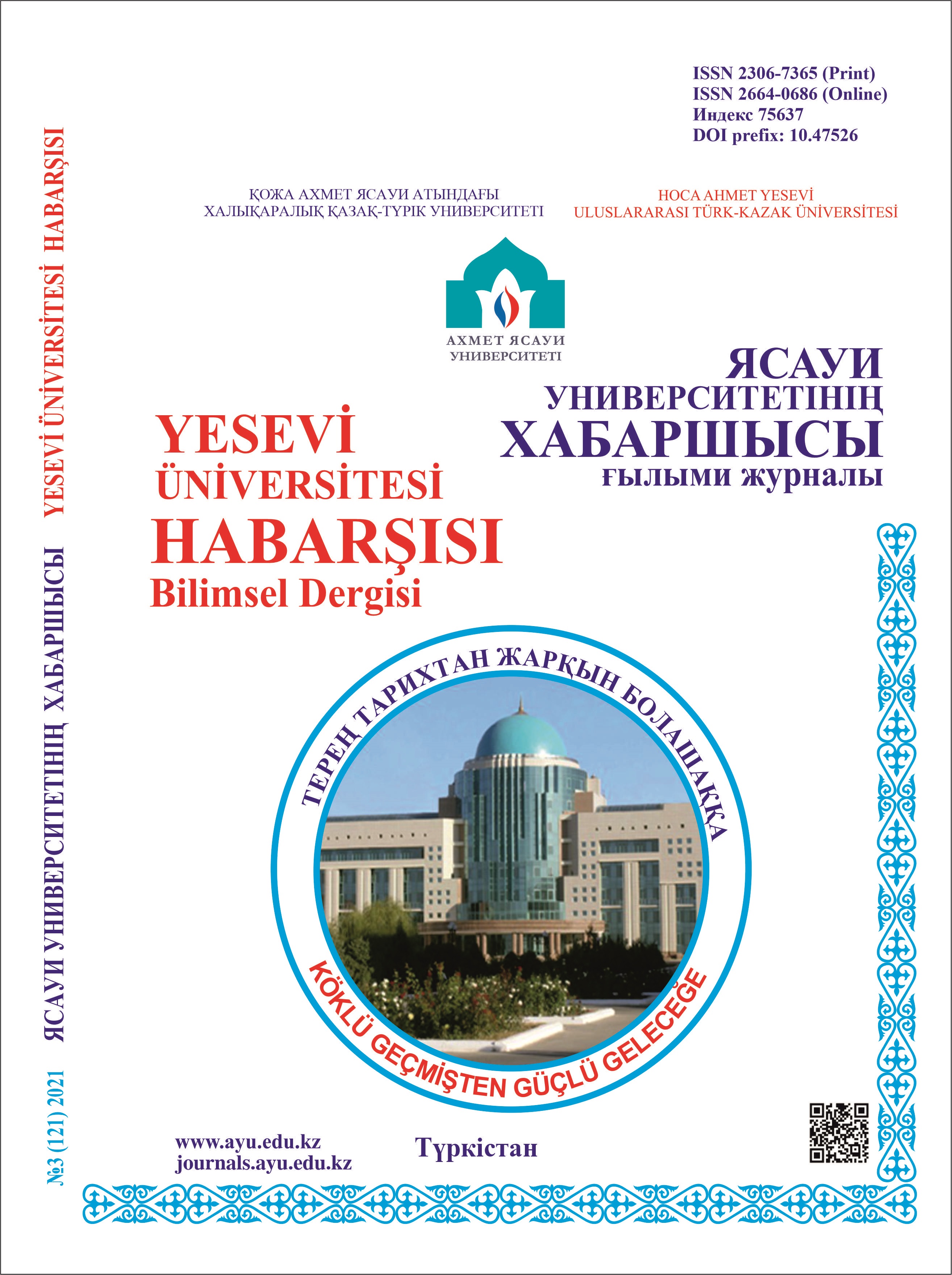Formation of the Scientific Knowledge of the Students in the Study of Microclonal Reproduction of Apple Rootstocks
Keywords:
design method, laboratory work, microclonal reproduction, apple rootstocks, nutrient medium, explant, regerant, sterilization.Abstract
The article presents a methodology for implementing the design method in the educational process in order to direct students to research work. The design method allows students to organize cognitive activity based on personal experience, and also contributes to the development
of behavioral qualities such as independence, curiosity, the development of social skills in the process of group interaction, research, the formation of creative thinking, the formation of intellectual, information, communication skills.
Analyzing the subtleties of the combination of education and science, special laboratory work has been developed for conducting research work of students. In the process of forming research competence, students acquired a number of practical skills: the ability to work according to plan,
independent work skills, the ability to work with laboratory equipment, etc. The features of improving the quality and efficiency of the educational process through the organization of laboratory work as a condition for the development of arbitrary qualities in the field of biology are considered.
Based on the analysis of diagnostic results at the ascertaining and control stages of the level of cognitive activity of students during laboratory work:
- low-level indicators in the group decreased from 34% to 10%;
- indicators of the average level of activity decreased from 49% to 42;
- indicators of a high level of cognitive activity increased from 17% to 48. As a result of the research work, an experimental diagnostic analysis was carried out.
References
ПАЙДАЛАНЫЛҒАН ӘДЕБИЕТТЕР ТІЗІМІ
Қазақстан Республикасының «Білім туралы» Заңы. №319-ІІІ ҚРЗ // Егеменді Қазақстан. Астана, Ақорда, 27.07.2007.
Жуматаева Е. Основы современной дидактики: учебное пособие. – Алматы: Эверо, 2016. – 125 с. 3. Пидкасистый П.И. Самостоятельная познавательная деятельность школьников в обучении. М.: Педагогика, 2013. – 240 с. 4. Кочкарова М.К. О способах формирования интереса к процессу познания // Биология в школе. – 2012. – №7. – С. 25–29.
Guseva E.V., Skurlatov V.V., Surkin M.Yu. Intersubject integration as means of a profiling training // Vestnik Voennoy akademii materialno-tehnicheskogo obespecheniya im. Generala armii A.V. Hruleva. – 2015. Volume: 1. – P. 141–146.
Калмыкова З.И. Зависимость уровня усвоения знаний от активности учащихся в обучении // Современная педагогика. – 2010. – №7. – С. 18–21.
Пасечник В.В. Организация индивидуально-групповой познавательной деятельности учащихся на уроках // Биология в школе. – 2013. – №6. – С. 23–27. 8. Фридман Л.М. Формирование познавательных интересов у школьников. – М.: Просвещение, 2011. – 283 с.
Орлов В.Н. Активность и самостоятельность учащихся. – М.: Логос, 2014. – 218 с.
Kimonen E., Nevalainen R. Reforming Teaching and Teacher Education: Bright Prospects for Active Schools. – Rotterdam; Boston; Taipei: Sense Publishers, 2017. – 268 р.
REFERENCES
Qazaqstan Respublikasynyn «Bіlіm turaly» Zany. №319-ІІІ QRZ [Law of the Republic of Kazakhstan «On Education»] // Egemendі Qazaqstan. Astana, Aqorda, 27.07.2007. [in Kazakh]
Jumataeva E. Osnovy sovremennoi didaktiki: uchebnoe posobie [The basis of modern didactics: textbook]. – Almaty: Jevero, 2016. – 125 s. [in Russian]
Pidkasistyi P.I. Samostoiatelnaia poznavatelinaia deiatelnost shkolnikov v obuchenii [Independent cognitive activity of schoolchildren in education]. M.: Pedagogika, 2013. – 240 s. [in Russian]
Kochkarova M.K. O sposobah formirovaniia interesa k processu poznaniia [The methods of formation of interest in the process of cognition] // Biologiia v shkole. – 2012. – №7. – S. 25–29. [in Russian]
Guseva E.V., Skurlatov V.V., Surkin M.Yu. Intersubject integration as means of a profiling training // Vestnik Voennoy akademii materialno-tehnicheskogo obespecheniya im. Generala armii A.V. Hruleva. – 2015. Volume: 1. – P. 141–146.
Kalmykova Z.I. Zavisimost urovnia usvoeniia znanii ot aktivnosti uchashhihsia v obuchenii [Dependence of the level of knowledge assimilation on the activity of students in education] // Sovremennaia pedagogika. – 2010. – №7. – S. 18–21. [in Russian]
Pasechnik V.V. Organizaciia individualno-gruppovoi poznavatelnoi deiatelnosti uchashihsia na urokah [Organization of individual and group cognitive activity of students at lessons] // Biologiia v shkole. – 2013. – №6. – S. 23–27. [in Russian]
Fridman L.M. Formirovanie poznavatelnyh interesov u shkolnikov [Formation of cognitive interests in schoolchildren]. – M.: Prosveshenie, 2011. – 283 s. [in Russian]
Orlov V.N. Aktivnost i samostoiatelnost uchashihsia [Activity and independence of students]. – M.: Logos, 2014. – 218 s. [in Russian] 10. Kimonen E., Nevalainen R. Reforming Teaching and Teacher Education: Bright Prospects for Active Schools. – Rotterdam; Boston; Taipei: Sense Publishers, 2017. – 268 r.

